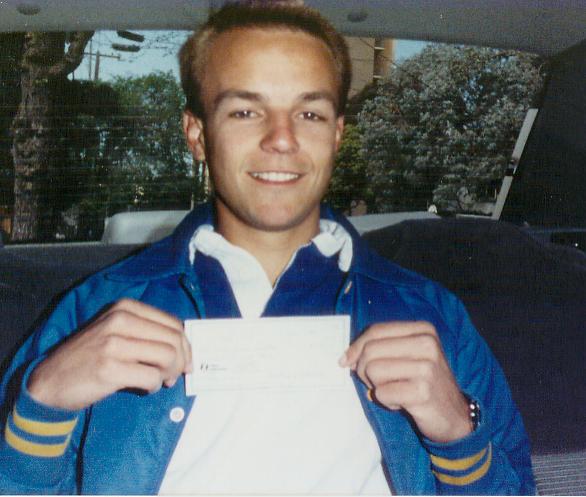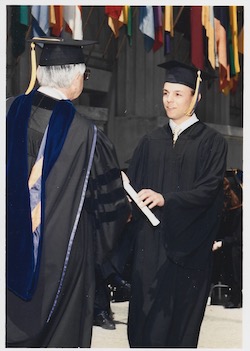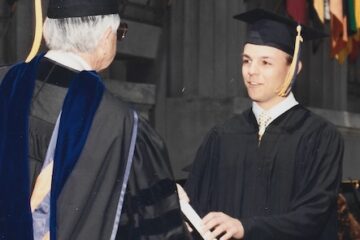Keep an open mind and argue with yourself
Before clicking “publish” on last week’s blog post about roles and responsibilities, I had to delete one of the three examples I’d written to support my main premise.
It was like an hour’s work, with cited links and amusing quotes. It was based on an insight I’d had years ago and relied on many times since.
But I had to delete it.
I discovered I don’t believe it anymore. While I stand by the post itself, I no longer believed that third example.
It wasn’t easy to change that belief at first. But having to say it out loud in public tested it for real, and it didn’t pass the test. So it got cut from the post, and cut from my belief system.
Writing these posts makes me think more deeply about many subjects
There’s a sense that content producers have a stack of cards filled with knowledge, and we just hand a few to a freelance writer, schedule out a bunch of posts, and sit back to watch new clients fill up our calendars and bank accounts.
That may be true for some people, but I don’t know any of those people and don’t trust the ones who claim that’s how it works.
I write all my own posts, and with the exception of a few stock images (always credited) or photos of me by other people (like the one below) or YouTube links, the graphics, photos, and video are all my own work.
All this content generation brings me a few clients, but it’s not nearly as effective as networking and word of mouth.
Then why do I do it?
Three primary reasons:
First, I just really enjoy it. I love writing these posts. When someone tells me they found one of them insightful or amusing, it makes me feel good. I’ve been a writer since I was a kid.

Photo credit: my mom (who else?)
Second, I think I have wisdom to offer. If I keep it locked in my head, it does no one else any good. So why not share what I have to say, and hope it helps someone? I like to think it will come back to me in some positive way, someday.
Third, and the real point of this week’s post: It helps me keep learning.
When I write a post, I need to make sure I believe what I’m saying before I press “publish.”
During the writing, I often do additional research, check the dictionary on precise definitions, and think more deeply about what I’m saying.
It’s that third thing that made me delete the example out of last week’s post.
So what was it I removed last week?
Although that post was really about roles and responsibilities, I used the language of rule-breaking. The third example would have shown a different version of rule-breaking from the other two.
As a writer, I’ve often thought it was important to “learn the rules in order to know when and how to break them.” That is, only after you’ve learned the standards of grammar and usage can you appropriately break those rules with proper intent.
You’ll find scads of errors in my blog posts. Sentence fragments, mostly. And, starting sentences with conjunctions. Occasionally a comma splice, rarely a run-on.
But all of those are intentional. I know I’m breaking the rule, and I have enough expertise and experience to understand when it will be effective and when it will be disruptive.
As I was putting together last week’s post, though, I kept thinking about the amazing poets in an ongoing virtual open mic I’ve been attending on and off over the last three years.
Although many of those poets are far more educated than I am and have multiple advanced degrees, many are not. Many of the most powerful poems have come from people who haven’t studied writing in an academic setting at all. Some were even still in high school.
Was it really true that to be a great poet, you had to learn the rules of grammar and usage in order to know when and how and why to break those rules?
Whose rules were they, anyway?
I’d spent maybe an hour writing up my example for that blog post. Cited links. Quoted authors. Did a good job of it. Then deleted it all.
I realized my example was actually perpetuating an idea that creates systemic inequity through a culture of elitism.
Whose rules were they, anyway?
And why should anyone invalidate the genius and mastery of those poets just because they never learned those rules?

Go Bears!
With the right attitude, nearly everything is a learning opportunity
I could have dug in and gone searching for reasons to cling to the misguided belief I’d held for years. I could have found an argument to comfort me in my elitism and privilege. I could even have worked a few exceptions in for the naturally talented, just so I could hold on to that original belief.
But then I’d be out of alignment with my personal values.
I want to see myself as a champion of equality and equity. I think it’s important for those of us from privileged backgrounds to help dismantle the systems that perpetuate inequity.
I strive to be that champion. But even with my long, diverse career and rich depth of personal experiences, I still learn all the time and have a long way to go.
That’s one of the main reasons I keep writing this blog every week—a lot of weeks, I end up teaching myself something new.
Keep an open mind.
I hope to be one of those people who continues to question and learn and grow as I age, not one of those curmudgeons who fights against anything that challenges their perspective or beliefs.
I won’t always have it right, but if I stick to my values, I’ll keep getting better.
How can I help you get better?
As a coach, I like to work with people who have a strong desire to be their best, most authentic selves in every part of their lives. I focus on connecting to core values, deepening self-awareness, identifying goals, and constant improvement.
If that sounds interesting to you, set up a free session with me and we’ll talk about it.
Some light verse just for fun
Stay tuned in the next month or two for an announcement about my creative writing. (Spoiler: A new book!) In the meantime, here’s a bit of light verse I wrote back in 2010. It’s one I’ve always enjoyed, and I find it describes how a lot of people wander through life. I’d love to hear how you interpret it and whether you relate to it or not.
Finding Contentment A year ago, the path was clear. I aimed for There and started Here. So I went forth without delay to turn my Here to Far Away. But as I went, each There became another Here, each one the same. At every Here I turned around to see the last Here that I'd found. I saw that Now had changed to Then and wanted to go There again. But this is Now and Here I'll stay, for There is just too Far Away.



1 Comment
Three simple rules for good written communication · April 18, 2023 at 3:30 pm
[…] Write with conviction. If you can’t write something with conviction, then you may not be ready to write it. […]